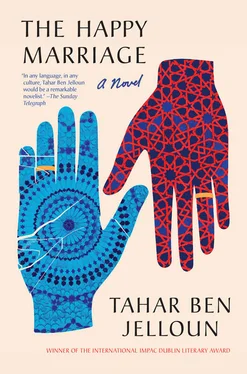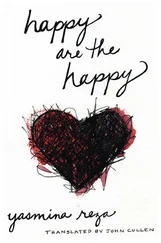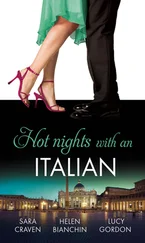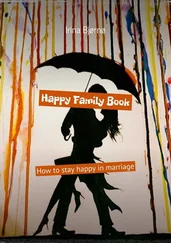So it was that one day he thought he’d stumbled onto the reason why their marriage had fallen apart so strangely. His wife had become two different people. Two people, two characters, two moods, two faces coexisted inside a single body. Even her voice had changed. He knew that every person on Earth seemed to suffer from a split personality, but the extent to which his wife did so was quite troubling. Sometimes he didn’t even recognize her. He would ask her: “Who are you? A stranger? Are you the mother of my children, or have you been possessed by someone else?” She never answered him. Over the course of his life, the painter had met people who were called “temperamental,” but this was something else. It seemed like a pathological condition! She would suddenly change from one state to the other, without any warning and without even noticing it. Whenever he heard her call out to him in a clear voice and say: “I have a surprise for you!” he knew the next fifteen minutes would be tough. It was her way of announcing that she wanted an explanation for something or that he was to fall victim to a well-organized attack.
Once, he’d returned home to find that the contents of his toiletry bag had been spilled onto the floor. He found his wife sitting on top of the stairs smoking a cigarette, waiting for him. At the time, he’d been using condoms whenever he made love to her. Calmly, she’d said: “Before you left for Copenhagen there were eleven, and now there are nine. So you cheated on me twice, you bastard, and you’re going to pay for it. I already called the hotel, her name’s Barbara, some bitch who works at the Klimt Gallery!”
Convinced that she was being persecuted — and that the painter’s family was out to get her, that her husband’s friends were dishonest profiteers, that the neighbors were jealous, that the people who worked in her house were trying to steal from her — she suspected everyone. She’d built a foundation of unshakeable certainties. There could be no discussions of any kind. He’d noticed that before she’d started to attack his family, she’d also tried to distance him from his friends, especially the ones he was closest to. She never lacked pretexts, and had ample opportunity to see them, so he’d always had to brace himself against her attacks.
The painter’s childhood friend had been an easy target for her. He had a bad temper and he was just as unyielding and full of hang-ups as she was. She would provoke him and he would reply in a scathing manner. So it eventually came to a head, and the painter was ordered to cut his ties with the “dwarf” who’d dared to criticize her. That friend had a penchant for humor, but he never took things lightly. The painter had held steady until the day his friend had sent him a letter informing him their friendship was over. His wife had won.
Her next target had been another of her husband’s friends, a wise philosopher. She’d eventually had a falling out with the man’s wife, though she never managed to drive a wedge between the painter and his friend.
She’d done much the same to others, including a friend of his who owned a gallery and had been one of the first to exhibit his works. The painter had thought of this friend as a sister, as part of his family. She’d become close to his mother and they’d helped one another out on occasion. His wife had immediately accused this friend of being — or having been — the painter’s mistress, which had made the friend laugh: there had never been anything between them, apart from a platonic friendship.
The painter had never meddled in his wife’s affairs, a golden rule that he’d broken on only two occasions because he’d thought she was actually in danger. The first was when he’d discovered that she’d been seeing a Syrian “student.” He’d tried to get her to understand that while he might indeed have been a “student,” he was likely an agent for the security services. He’d explained to his wife that Syria was ruled by a fearsome police state and that he’d recently signed a petition for the release of political prisoners being held in Damascus. It would be very risky, he’d stressed, for either of them to be in close contact with this man. She’d refused to believe him and had continued going for “coffees” with the Syrian. The other occasion had arisen when a few friends of his in Casablanca had told him: “Your wife is keeping strange company these days. Do you know that she’s spending time with a woman named Loulou, who has ties to black-marketeers and shady guys who pimp girls out to visiting Saudis? Your wife obviously doesn’t have anything to do with that, but she doesn’t understand the situation, or realize how much harm this could bring upon the two of you. She needs to break off all ties with this woman!”
He’d asked his wife to follow the advice they’d been given to the letter. She still had time to extricate herself. But she had taken all of this very badly and had shouted that he was just like every other Moroccan man: sexist and full of prejudices, letting himself be easily swayed by rumors. She was incapable of believing her husband, or confiding in him, or asking him any questions. She had no doubts. Never had any doubts. Never admitted her mistakes. He’d known that for a long time and now this was something all the people around them were starting to learn, too. Despite her husband’s repeated warnings, she’d continued to see Loulou, right up to the day when the latter had made an indecent proposition that had shocked her, at which point she’d finally stopped seeing her.
For a long time, the painter had never asked himself whether his wife was being faithful to him. He’d never suspected her of having lovers, even though he traveled so often for work that she had ample opportunity to cheat on him. Still, he’d never kept tabs on her, didn’t rifle through her belongings, didn’t read her letters or look in her diary. She was a free woman and wasn’t accountable to him. Yet he’d started to have doubts after she’d gone on holiday with a friend in Tunisia. She’d come back with an obsession: to know, read, and watch everything she could about — or by — Stanley Kubrick. He remembered that she hadn’t much liked 2001: A Space Odyssey , so where had this sudden passion sprung from? As it happens, she’d met a certain Hassan, who’d been writing a thesis on Kubrick and had shown her some of his films. Her sudden interest in the filmmaker had merely been a means to pay him homage. Hassan had given her a big book on Kubrick’s films as a present. For the next two weeks, she did nothing except talk about Barry Lyndon, Paths of Glory, The Killing , or Dr. Strangelove .
She’d betrayed herself.
When he’d tried to bring it up with her, she’d dodged his questions and argued that his upbringing forbade him from having lovers. One day, he’d found some condoms on the bathroom floor that had fallen out of her toiletry bag.
“What are you doing with those?” he’d asked.
“Ah, those are free samples given out by an anti-AIDS campaign.”
He hadn’t believed a word, but he’d kept quiet and thought to himself: “If I open these floodgates then we’ll have to spill all our secrets, and there’ll be hell to pay!”
XIII. Casablanca, November 15, 1999
When I’m with you, nothing frightens me, not even the war, although perhaps the police still do.
— Veronika to Boris, before he leaves for the war
MIKHAIL KALATOZOV, The Cranes Are Flying
One of the painter’s close friends was a Greek named Yiannis. The painter confided in Yiannis, who was also helping him learn Greek. At some point in the future, the painter wanted to go live on the small island of Tinos. Yiannis had a great sense of humor, with a special fondness for black humor, and he shot films about contemporary artists and occasionally wrote pieces for some of his country’s newspapers. He was also a Casanova, a ladies’ man, even though he had the physique of neither a Greek god nor an American basketball player. He more closely resembled Professor Cuthbert Calculus, and observed the things that happened to him with an ironic remove. They always met in the same restaurant along with Father François, another friend of theirs, who wasn’t a priest, but a poet and a great writer who preferred to keep a low profile. It was Yiannis who loved to call the good-humored, radical atheist “Father.”
Читать дальше












